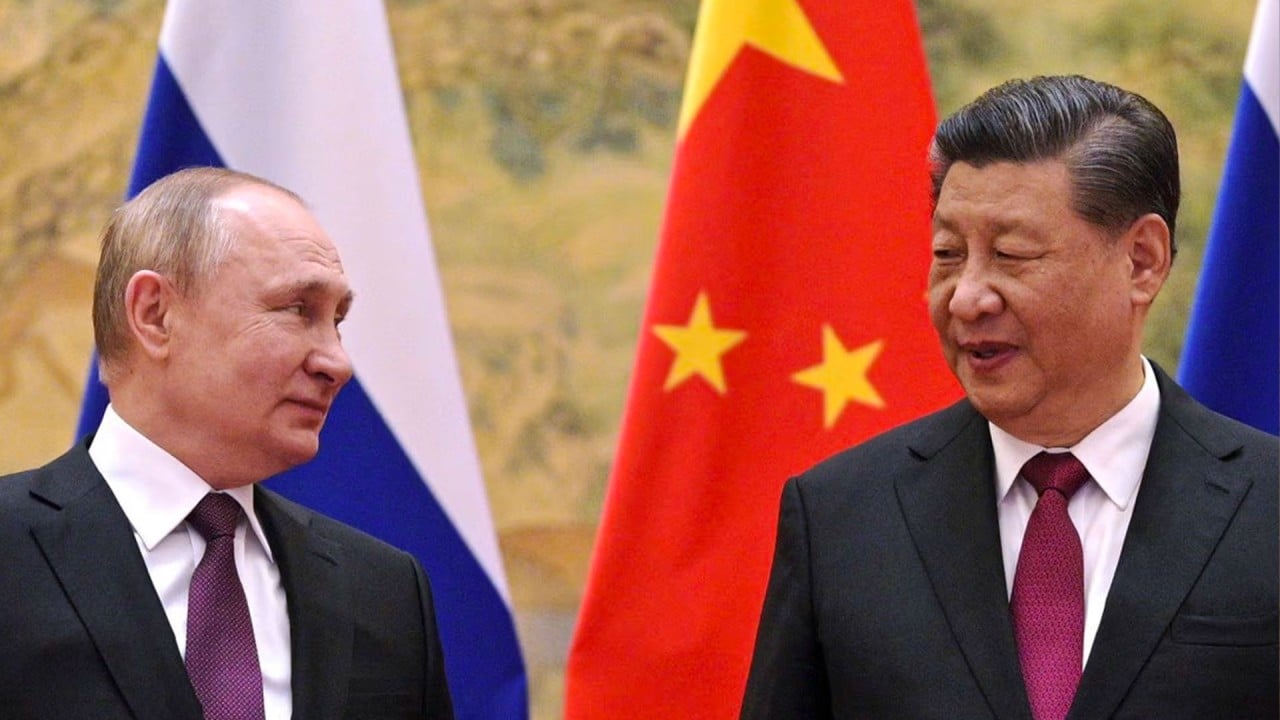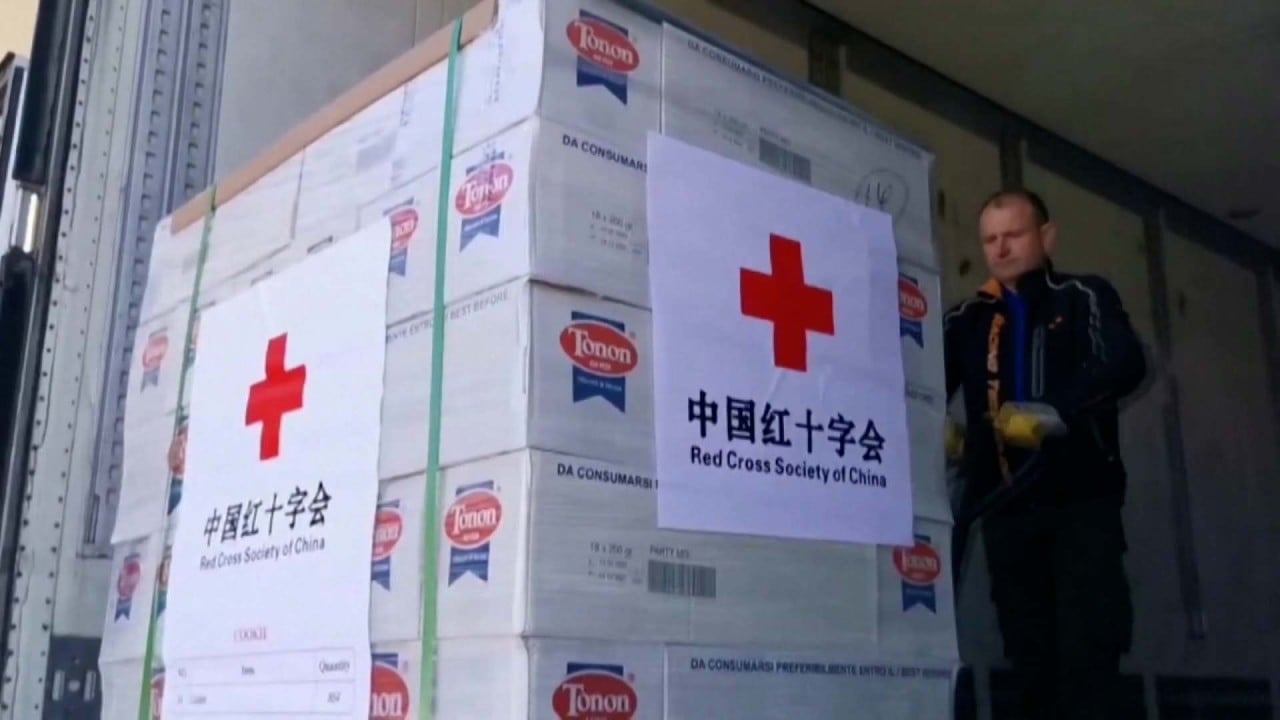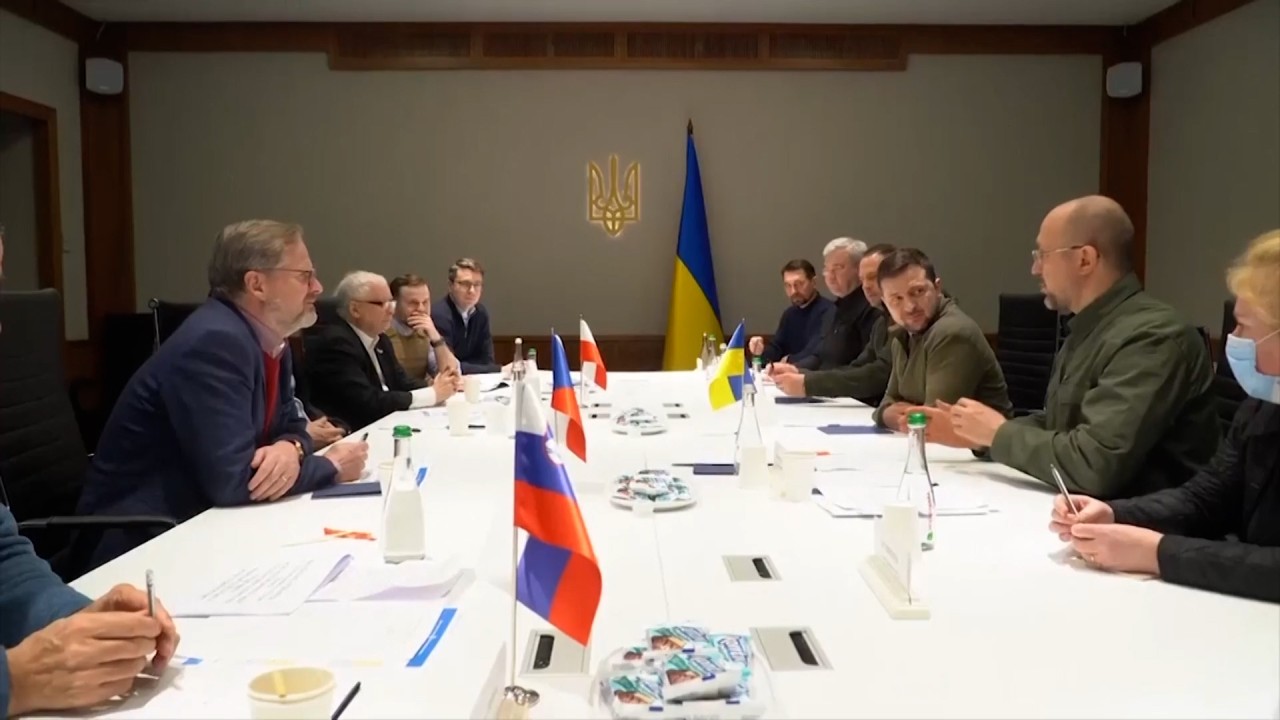In the name of its so-called responsibility to protect human rights, the US-led West legitimised “armed humanitarian intervention” in connection with self-defined “violations of state responsibility”, overthrew legitimately elected governments and leaders and launched all kinds of “colour revolutions”.
07:14
What China could gain, and lose, in the Ukraine-Russia crisis
More paradoxically, Nato’s intervention in Kosovo in 1999 and the US invasion of Iraq in 2003 were illegal actions without UN authorisation.
There are two competing scenarios that would come out of the current war. The first is that the war would further push the EU towards the US, which would be against Chinese interests.
The argument is that the EU has been attempting to keep a balance between its cultural and security alliance with the US, and its economic and trade partnership with China. Beijing’s support for Russia would break such a balance.
SCMP Global Impact Newsletter
By submitting, you consent to receiving marketing emails from SCMP. If you don't want these, tick here
However, Chinese elites firmly believe that with or without the Ukraine war, China is without doubt the No 1 “systemic rival” that the US is determined to contain, and that the EU will surely be on the US’ side. The logic is clear: they cannot accept the supremacy of a non-Western global power. Therefore, it is an illusion to expect any difference between them on this shared awareness.
Both the US and the EU define China as a systemic rival. The notion of systemic rivalry implies that the impact of China’s challenge to the world order not only represents some functional redistribution of comparative advantage (hard power) within the existing order; it also symbolises more serious structural changes – a paradigm shift – in which the institutions and regimes, as well as the norms and values grounded on the existing world order, need to be redefined.
The rivalry between China and the US in geopolitical, security, economic, technological and ideological dimensions has become a paradigm of international relations. In other words, the China-US rivalry is politically instrumental and is bound up with the development of the world disorder, reorder or new order.
01:51
China sends Ukraine humanitarian aid, not weapons, says China’s ambassador to the US
The EU does not seem to be a key actor in resolving the tensions between Ukraine and Russia. The EU was, is and will be a junior partner of the US in international affairs. Due to its own weaknesses and divisions, the EU has never been seen by major powers, including Russia, as an equal partner in discussing issues such as arms control, military arrangements and other security issues.
The EU has little to bring to the table due to its lack of strategic independence and its heavy reliance on the US. Obviously, the Ukraine war is a golden opportunity for the US to reconsolidate the transatlantic alliance which was weakened during the Donald Trump administration.
In the new era of great power rivalry between China and the US, the US determines many issues with regard to what the EU should or should not do. The US warning appears to be that “we either hang together or we hang separately”. The EU has no other option.
01:51
3 European leaders travel to Kyiv war zone in bold show of support to Ukrainian leader Zelensky
However, the second scenario is that Russia secures victory in the Ukraine war, permanently resolving its security dilemma and ending Nato’s eastward expansion. President Vladimir Putin would consolidate his political leadership as a national hero.
Consequently, both the US and the EU would have to concentrate their attention and energy on containing Russia’s threat. This would give China another peaceful period for economic development, just as the Iraq war gave Beijing a geopolitical gift. This is an ideal situation for China to bet on.
World history is full of alternative and unexpected scenarios. World orders, disorders or reorders have always resulted from the disturbing dynamics unleashed by the rise of new powers and the resistance of established powers.
Historical lessons show that rising powers, whether perceived as revisionist or the status quo, have been intrinsically involved in dynamic interactions with various transformations of world order scenarios.
Like it or not, China cannot lose Russia as its strategic resource in counterbalancing the power of the US, especially since China’s geopolitical room for manoeuvre in its rivalry with the US has been challenged. Don’t forget that China still has the Taiwan issue to resolve – an analogue the West is linking with Ukraine.
Li Xing is a professor in the Department of Politics and Society at Aalborg University, Denmark




